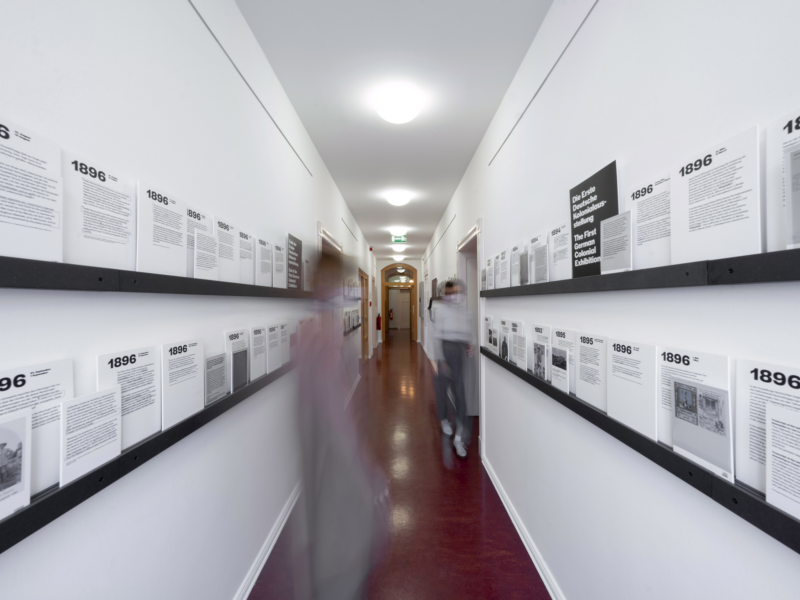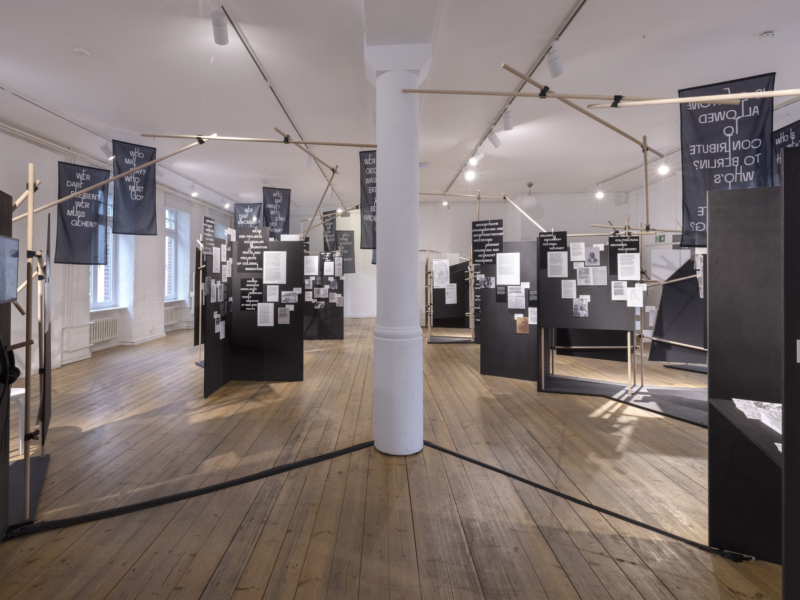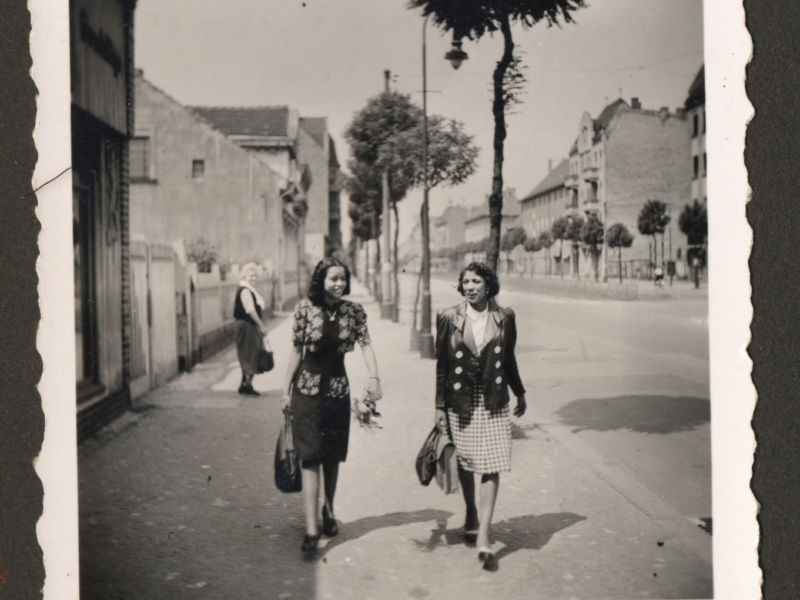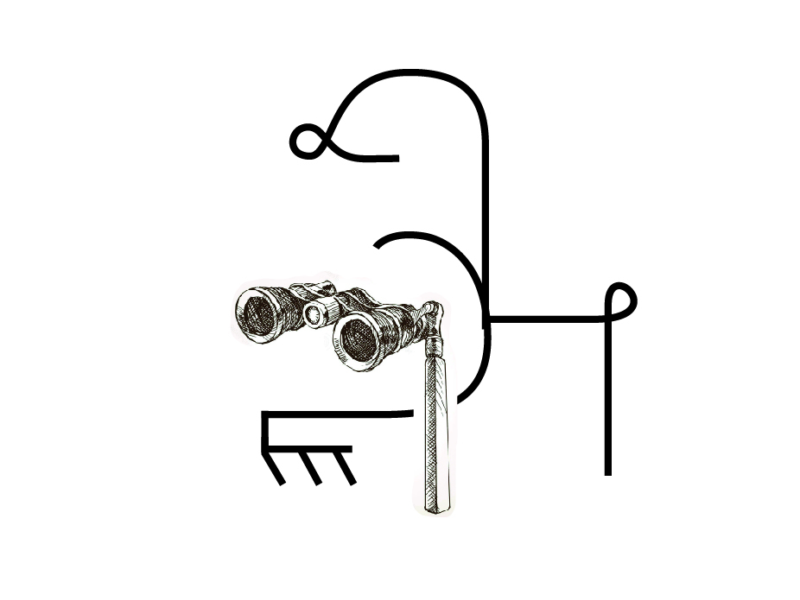Dekoloniale exhibitions in cooperation with Berlin district museums
In the years 2021 to 2024, a series of exhibitions will be realized in different districts of the city that deal with Berlin's colonial history and its aftermath up to the present day. Institutional partners of the initiative are in particular district museums with their characteristic openness to a locally anchored civil society commitment. In the conception and implementation of the projects, the experiences of curators, scientists and artists with their own biographical references to colonial history should come into their own.

2023
Stand in Solidarity!
Black Resistance and global Anti-colonialism in Berlin, 1919-1933
From September 15, 2023, the project Dekoloniale Memory Culture in the City and the Museum Charlottenburg-Wilmersdorf will show the joint exhibition »Stand in Solidarity! Anti-colonialism and Black Activism in Berlin, 1919-1933« at the Villa Oppenheim. The exhibition understands itself as a contribution to the decolonization of the city's history and focuses on actors from the former German colonies in Africa and on Black movement history.
In the political force field of the Weimar Republic, between the end of monarchy and colonial rule, the rise of communist internationalism and the rise of the National Socialists, Berlin became a postcolonial metropolis in a largely colonial world: migrants from Germany's deprived colonies in Africa already lived here. Now the city also becomes a center of attraction for numerous actors from the North African, Asian and Arab regions.
Coming from different colonial contexts, they become politically active, form anti-colonial alliances, demand independence for their countries of origin, resist racism. Although the motives and circumstances of their stays differ, moments of solidarity emerge that are made visible by the exhibition. An essential role is played by the Communist International (Comintern), which provides a common political language and financial resources.
The anti-colonial Berlin of this exhibition is obstinate, revolutionary, and ephemeral. More than thirty actors whose lives crossed paths here will be presented. »Stand in Solidarity« traces the areas of friction and anchor points their initiatives had in everyday urban life and how as a global movement they had an impact far beyond.
The exhibition is the result of a cooperation between the Museum Charlottenburg-Wilmersdorf and the afrodiasporic and decolonial organizations of the project network Dekoloniale Memory Culture in the City. The design is made by Studio visual intelligence.
The exhibition opening will take place on the 14th of September 2023 at 6:30 pm in the Villa Oppenheim. Greetings by the curators, conversations with descendants of the historical actors, and musical contributions by "The String Archestra" under the direction of Dr. Dr. Daniele G. Daude are planned. The exhibition opening is also the kick-off of the Dekoloniale Festival 2023.
Duration 15. September 2023 - 17. März 2023
Opening Hours:
Tuesday to Friday 10am – 5pm
Saturday, Sunday und public holidays 11am – 5pm
Admission is free.
Location: Museum Charlottenburg-Wilmersdorf in der Villa
Oppenheim,Schloßstraße 55 / Otto-Grüneberg-Weg, 14059 Berlin

2022
Despite All. Migration to the colonial metropolis Berlin
The FHXB Museum and the model project "Dekoloniale Erinnerungskultur in der Stadt" will be showing the collaborative exhibition "DESPITE ALL: Migration to the Colonial Metropolis of Berlin" from 21 October 2022. The exhibition explores projects, debates and policies of migration to the colonial metropolis of Berlin. It focusses on the complex realities of life and resistance of the people who came to the city in a colonial context - despite racist discrimination and exclusion - and became Berliners.
As an imperial state, the German Empire was already developing into a migration society in the 19th century. Although immigration from colonised regions was not intended, people came to Berlin - especially from the German colonies. For these migrants, there were no consistent regulations on the right of residence or citizenship; however, many saw themselves as citizens of the German Empire. Without German citizenship, they were subject to arbitrary decisions by the authorities and always threatened with expulsion. Nevertheless, some stayed, built a life here and became part of Berlin society. The exhibition explores their stories, realities of life and resistance and highlights that Berlin was a colonial metropolis and migration society before and after Germany's formal colonial rule from 1884 to 1919.
The FHXB Friedrichshain-Kreuzberg Museum and the civil society project "Dekoloniale Erinnerungskultur in der Stadt" have researched, debated and designed this exhibition together. Those involved encourage a new look at Berlin, to understand colonialism and migration as inseparable components of our history and present.

2021
looking back - The First German Colonial Exhibition of 1896 in Berlin-Treptow
From 15 October 2021, Museen Treptow-Köpenick [district museums Treptow-Köpenick] and the project Dekoloniale Memory Culture in the City will be showing the fundamentally revised exhibition zurückgeschaut I looking back - The First German Colonial Exhibition of 1896 in Berlin-Treptow. It is the first permanent exhibition on colonialism, racism and black resistance in a Berlin museum.
125 years ago, from 1 May until 15 October 1896, the “First German Colonial Exhibition” took place in Treptower Park. Political as well as industrial and religious institutions were involved in the large-scale event, together with ethnological and natural science museums. As part of a discriminatory ethnological exhibition [Völkerschau], 106 people from German colonies were paraded before an audience of millions. Most of the participants were unaware that they were to be “put on display” in Berlin in order to play to racist stereotypes and colonial fancies. Many of them made a stand against their allotted role: Kwelle Ndumbe from Cameroon acquired a pair of opera glasses and stared back at the audience in Berlin. The colonial exhibition of 1896 is a pivotal event in the global history of Berlin and of particular significance for the history of its Black Community.
The permanent exhibition “zurückgeschaut | looking back” is dedicated to the history and repercussions of the First German Colonial Exhibition. The focus is on the 106 children, women and men from Africa and Oceania, their biographies and their resistance. Moreover, the structure of the colonial exhibition and its historical context will be highlighted. The new exhibition is the result of a close cooperation between Museen Treptow-Köpenick [district museums Treptow-Köpenick] and the Afro-Diasporic and decolonial organisations from the Dekoloniale Memory Culture in the City project network. The redesign of zurückgeschaut | looking back was conceptualised by Studio visual intelligence.
Dekoloniale Memory Culture in the City is a joint project of Berlin Postkolonial e.V., Each One Teach One - EOTO e.V., Initiative Schwarze Menschen in Deutschland - ISD-Bund e.V. and Stiftung Stadtmuseum Berlin. Dekoloniale [Re]presentations, a subproject of Dekoloniale, is staging a series of cooperative exhibitions dealing with Berlin’s colonial history and narrative of resistance and the repercussions from this, in different city districts. The project is sponsored by Berliner Senatsverwaltung für Kultur und Europa [Berlin Senate Department for Culture and Europe] and Kulturstiftung des Bundes [German Federal Cultural Foundation].
The exhibition launch on 15 October at 6pm will take place as a streaming event because of the pandemic. It is scheduled to include a panel discussion by the curators as well as contributions from the artist Bahati. The streaming link is accessible via the websites of Museen Treptow-Köpenick [district museums Treptow-Köpenick], and the project Dekoloniale Memory Culture in the City
The Treptow Museum is located on the 2nd floor of the historic Johannistel town hall, Sterndamm 102, 12487 Berlin.
Registration for public tours: museum@ba-tk.berlin.de
Opening times: https://www.berlin.de/museum-t...
The opening of the exhibition took place on October 15, 2021. You can watch the opening including a digital tour of the exhibition here (at the bottom): https://www.dekoloniale.de/de/...

Dekoloniale – what remains?!
Decentralised exhibition at various locations in Berlin-Mitte
On November 14, 2024, the model project Dekoloniale Memory Culture in the City and the Stadtmuseum Berlin will open their decentralized exhibition “Dekoloniale – what remains?!” It explores Berlin’s centuries-long entanglement in the global history of slavery and colonialism and critically examines this violent past.
The exhibition features three significant sites of coloniality in Berlin-Mitte: the Museum Nikolaikirche, housing the tombs of colonial figures, the (post)colonial memorial that is the "Afrikanisches Viertel" ["African Quarter"] and the "Asiatisch-Pazifische Straßen" ["Asian-Pacific Streets"] in Berlin-Wedding, and the historical venue of the 1884/85 Berlin Conference on Wilhelmstraße 92. The exhibition goes beyond merely exposing the colonial racism embedded in these public spaces by overwriting it with the stories of resistance from African, Asian, and diasporic communities.
You can find more information on the individual exhibition venues, opening and running times here.
“Dekoloniale – what remains?!” concludes the inaugural phase of Dekoloniale Memory Culture in the City. It poses the question: What does it mean to maintain a lasting, consistent memory?
